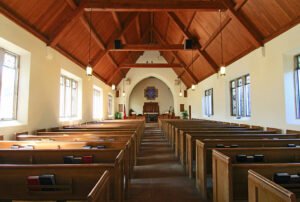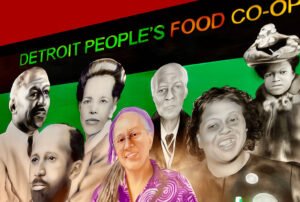
September 28, 2018; GlobeSt.com and Mortgage News Daily
Freddie Mac, the government-sponsored enterprise that guarantees over $2 trillion worth of mortgages nationwide, has announced it will start purchasing community land trust mortgages as a standard part of its business, reports Erika Morphy for GlobeSt.com.
Typically, if you buy a single-family home and get a mortgage from a bank or credit union, that entity can then resell the loan to one of the two government-sponsored enterprises, Freddie Mac or Fannie Mae. Doing this gets the loan off the bank’s balance sheet, which in turn frees up capital for more loans. Up until now, banks that made loans to community land trusts have most often had to keep the loans in portfolio, making the loans far riskier for the banks involved. The result is that many banks have been less willing to make the loans in the first place.
One group likely to benefit from Freddie Mac’s new policy is a startup community land trust in the heavily Black southeast quadrant of Washington, DC, east of the Anacostia River, an effort that NPQ covered last fall. To date, east of the Anacostia, the nation’s capital has not seen significant displacement, but residents, having seen gentrification occur elsewhere in DC, want to establish community ownership of land before significant resident displacement occurs.
Sign up for our free newsletters
Subscribe to NPQ's newsletters to have our top stories delivered directly to your inbox.
By signing up, you agree to our privacy policy and terms of use, and to receive messages from NPQ and our partners.
Ginger Rumph, the newly hired executive director of the Douglass Community Land Trust, says in a press release that, “Our collaboration with Freddie Mac to develop a product in support of a community land trust in the Historic Anacostia neighborhood, and Wards 7 and 8 in Washington, DC, will pave the way for a model that can be replicated in similar geographic areas across the country.” The Douglass Community Land Trust is being incubated by City First Homes, which is affiliated with City First Enterprises, a community development financial institution (CDFI) with over $250 million in assets.
As NPQ has explained, with a community land trust, a nonprofit holds title to the land and the family buys the house on top of the land. The family has many of the rights of fee-simple homeowners, but because the nonprofit owns the land, the price for which the home can be sold is restricted; most of the equity stays with the nonprofit. This form of housing effectively avoids land speculation and preserves affordability for multiple generations of homeowners.
The new Freddie Mac policy effectively reduces risk to financial institutions, since loan servicers—be they banks, credit unions, or other mortgage providers—now have a clear set of procedures that, if followed, will enable them to sell their loans to Freddie Mac. This action is part of a broader effort by Freddie Mac to support housing in low-income communities and communities of color, as outlined in its 230-page, three-year Duty to Serve Underserved Markets Plan. Additional areas of focus in the plan include support for resident ownership of manufactured housing communities and rural housing.
To help increase the number of community land trust loans issued under this program, “Freddie Mac has built alliances with national, state and local community organizations such as the Grounded Solutions Network,” Morphy notes. Grounded Solutions Network is a national trade association supporting the expansion of community land trusts. State and local partners including City First in DC and Florida Housing Coalition, whose efforts NPQ profiled this past August. The new program is scheduled to launch, Morphy writes, on November 5th.—Steve Dubb












